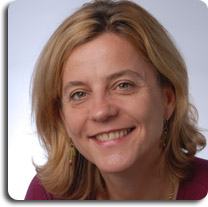 Yvette Alberdingk Thijm is the Executive Director of WITNESS, an awesome TILE Human Rights charity. Yvette has ultimate responsibility for envisioning, conceptualizing and implementing WITNESS’ overall direction. She leads efforts to carry out the programmatic, organizational and funding strategies necessary to ensure her organization’s mission and health. She’s also responsible for overseeing the organization’s compliance with legal and regulatory requirements. What a job.
Yvette Alberdingk Thijm is the Executive Director of WITNESS, an awesome TILE Human Rights charity. Yvette has ultimate responsibility for envisioning, conceptualizing and implementing WITNESS’ overall direction. She leads efforts to carry out the programmatic, organizational and funding strategies necessary to ensure her organization’s mission and health. She’s also responsible for overseeing the organization’s compliance with legal and regulatory requirements. What a job.
TILE: How do issues relating to human rights affect young people?
Yvette: All over our globe, we want the same things: access to education, clean water, non-discrimination. We want to be treated fairly and with respect; we’re global citizens and the future is ours – we need to protect it and the earth.
TILE: What’s the most important thing we can do to affect human rights around the world?
Yvette: WITNESS says: see it, film it, change it! You’ve got the power. Tell your story. Get involved your community, neighborhood, school, and use your iPod or cellphone to document what’s going on around you and change it!
TILE: What’s the biggest challenge you face in your work?
Yvette: All the injustice in the world can feel overwhelming. But anyone can make a difference and when we work together we can change a lot.
TILE: What’s the best advice you would give to your teenage self?
Yvette: Get involved and stand up for what you believe in. Your voice is important. Make sure it’s heard and help others’ stories get out there.
TILE: How do you think young people can play a role in the changing landscape of philanthropy?
Yvette: Young people understand what it’s like to be connected digitally, and can make a big difference easily through Twitter, Facebook and social networks – it’s a lifestyle: if you decide to care, people will listen and join you.
>> TILE brings you exclusive opinions, explanations, and interviews from experts in every industry. To read more, click on Ask the Experts in the TILE Library.
Have a burning question or an expert you’d like to see interviewed? Just Ask TILE!